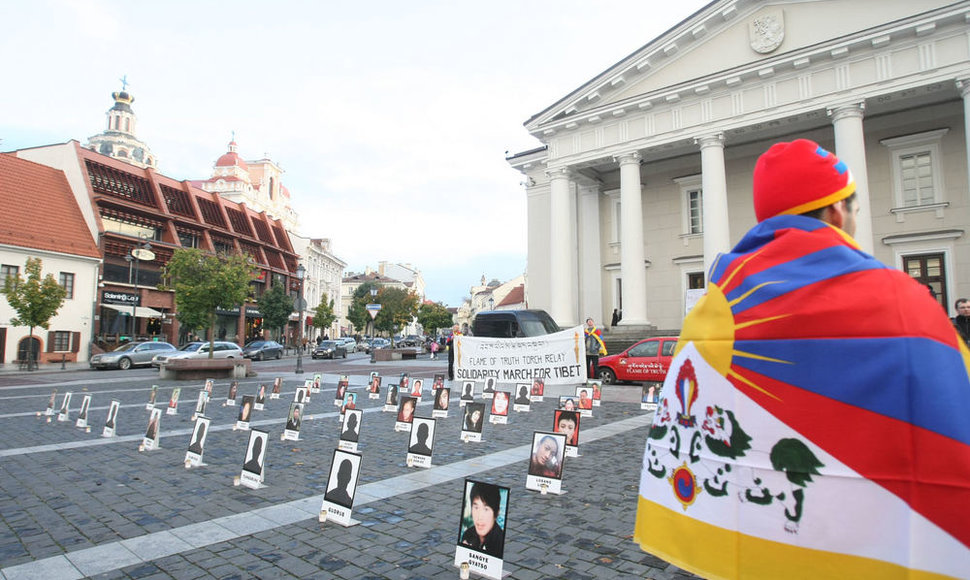"People of the Baltic countries - Estonia, Latvia, and Lithuania - know a problem of having no country. Lithuanian people got freedom and independence 22 years ago. Now Lithuania knows the value of freedom and how to help other people like Tibetans who have no freedom at the moment," Wangchen told BNS on Thursday.
He is in Lithuania to present his global series of events Flame of Truth, which the Tibetan parliament-in-Exile has launched to draw the attention of the United Nations (UN) and the global community to the tragedy surrounding Tibet. In protest of Chinese repressions, several dozen Tibetans set themselves on fire in the region in the Himalaya mountains over the past few years.
Wangchen urged the global community to speak up about the problem.
"Even though Tibetan people inside Tibet are suffering, dying, burning inside Tibet, bus still the international community and UN are silent, they don't speak for Tibet. United Nations know the problems of Tibet, but because of the Chinese economic power the UN and every country are silent. So we are asking - please speak for Tibet and go there and find out the real situation in Tibet," he said.
In Wangchen's opinion, the United Nations could send a delegation to the Himalayan region and make sure that the situation is different from that portrayed by the Chinese administration.
"From our side we say we are suffering, but the Chinese government says Tibet is happy, Tibet is better now, Tibet is making progress, Tibet is happy, don't worry. If its true, then why are Tibetans dying now?" the Tibetan representative asked rhetorically.
In his words, the Chinese administration controls the media and all Tibetan monks and lamas, striving to gradually push the Tibetan language out of schools, while Tibetans make a minority in their own land – they count 6 million Tibetans, while the Chinese make 8 million people. Tibetans do not expect independence but want at least autonomy and fundamental rights.
"But they don't even give us autonomy, then how would they give us independence? The Chinese government is afraid: if they give autonomy and independence to Tibet, then inner Mongolia will ask for independence and all countries - like the Soviet Union, what happened - they fell apart," he added.
"We, Tibetans, are not asking for independence from China, we are asking for autonomy and human rights in Tibet, freedom of religion, education, movement, and also take care of the environment in Tibet, because Chinese government is destroying our nature," Wengchen told BNS.
"We are asking not only for freedom and peace in Tibet, we also ask for democracy in China, because in China there is no freedom of religion, the Chinese people are suffering," he noted.
Wangchen said Chinese people were also suffering from the Chinese government.
"They don't want the rest of the world to know the problem of the Chinese people. They only want to show the 'Made in China' economic power to the world. To make business in China is absolutely okay, we are not against that, but please all the governments, all the UN, you can make business with China, but at the same time please ask for more human rights in China ant Tibet, more freedom of religion and education in Tibet," he concluded.
At the risk of their lives, Tibetan nationals protest against repressions launched by China in the Himalayan region it has occupied 60 years ago. About 50 people set themselves on fire in Tibet over the past three years.
Lithuania officially considers Tibet as part of China. However, together with other countries of the European Union (EU), it speaks for peaceful regulation of relations between the Chinese administration and Tibet's spiritual leader Dalai Lama and his representatives.


















